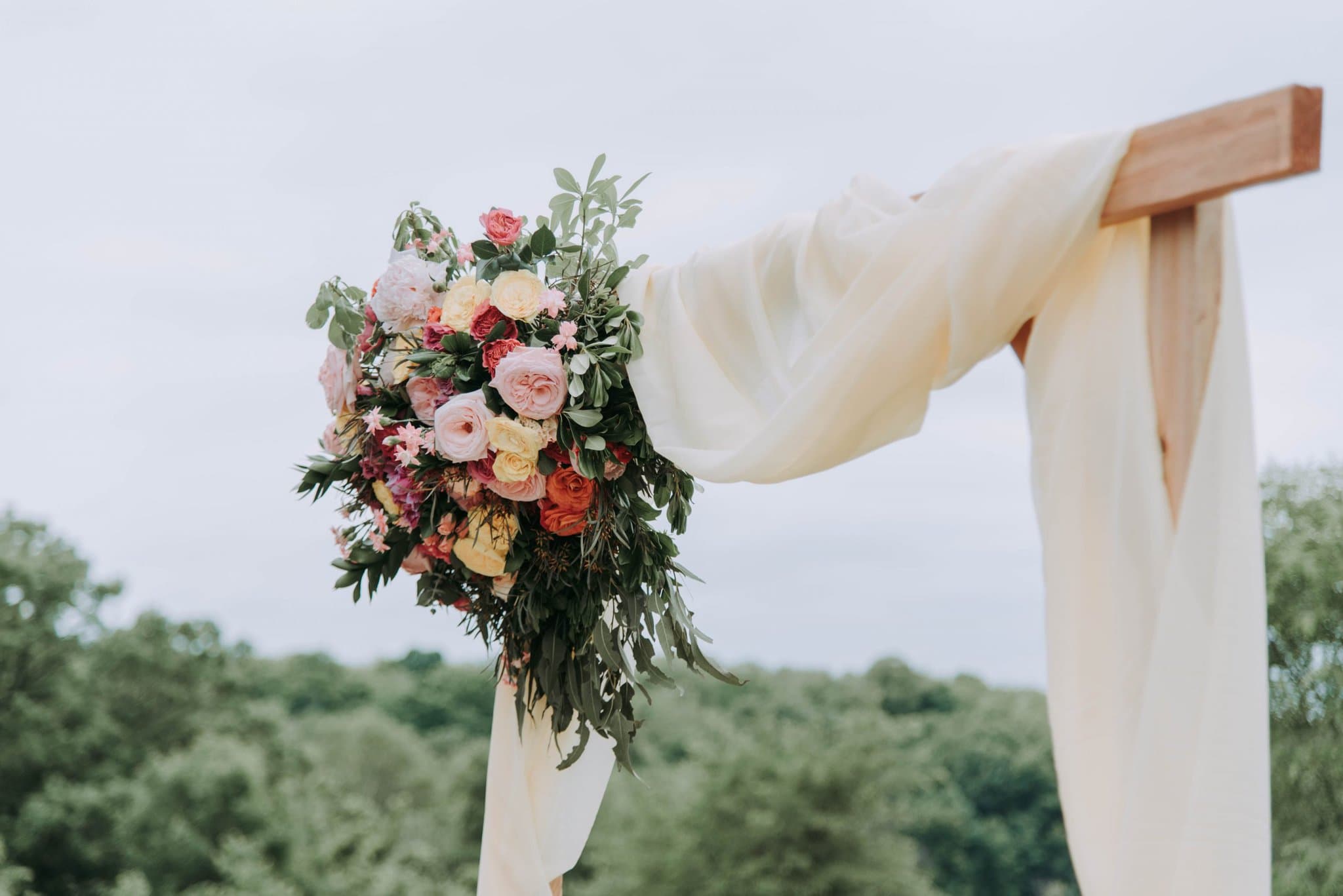How to Choose the Right Wedding Officiant
Choosing a wedding officiant is an important decision as they will be the person who legally marries you and sets the tone for your ceremony. Here are some things to look for when choosing a wedding officiant:
- Experience and Credentials: Look for an officiant who has experience performing weddings, and who is licensed to perform marriages in your state or country.
- Personal Connection: Your wedding officiant should be someone who you feel comfortable with and who can help create a ceremony that reflects your personalities and values.
- Communication Skills: A good wedding officiant should be a good communicator who can clearly explain the ceremony and its elements, and who can work with you to create a ceremony that meets your needs.
- Flexibility: A great officiant should be willing to work with you to create a ceremony that fits your unique vision, whether that means incorporating religious or cultural traditions, or creating something entirely new.
- Professionalism: Your wedding officiant should be professional, punctual, and responsive to your questions and concerns throughout the wedding planning process.
- Reviews and Recommendations: Check online reviews and ask for recommendations from friends and family to find an officiant who has a good reputation and a track record of providing great service.
Overall, choosing the right wedding officiant is about finding someone who can help create a meaningful and memorable ceremony that reflects your love and commitment to each other.
How much should I expect to spend on a wedding officiant?
The cost of a wedding officiant can vary depending on several factors, such as their experience, location, and the type of ceremony you want. On average, the cost of a wedding officiant in the United States can range from $200 to $800. However, some officiants may charge more or less than this range.
It’s important to keep in mind that some officiants may charge additional fees for travel, rehearsal, or customization of the ceremony. Therefore, it’s a good idea to discuss all the fees and services with your officiant before hiring them to avoid any surprises later on in the process.
The cost of a wedding officiant should be considered as part of your overall wedding budget, and you should choose an officiant whose services fit your budget and preferences.

What are the different types of wedding officiants?
There are several different types of wedding officiants, each with their own unique characteristics and qualifications. Here are some of the most common types of wedding officiants:
Religious Officiants: These are typically ordained members of a specific religion, such as a priest, rabbi, or imam, who perform wedding ceremonies according to the customs and traditions of their faith.
Civil Officiants: These are individuals who are authorized by the government to perform legally-binding marriage ceremonies. Examples include judges, justices of the peace, and city clerks.
Humanist Officiants: These are non-religious officiants who perform ceremonies that are focused on celebrating the human experience and the values of love, compassion, and kindness.
Spiritual Officiants: These are individuals who incorporate spiritual or metaphysical elements into their ceremonies, but may not necessarily be affiliated with a specific religion or denomination.
Friends or Family Members: In some cases, couples may choose to have a friend or family member perform their wedding ceremony. While these individuals may not have any official credentials, they can still create a meaningful and personal ceremony for the couple.
It’s important to note that the qualifications and requirements for each type of officiant can vary depending on the location and legal requirements of the ceremony. Couples should check with their local government or wedding venue to ensure that their chosen officiant is authorized to perform their ceremony.

How do I properly plan the ceremony script with my wedding officiant?
Planning your wedding ceremony script with your wedding officiant can be an exciting and meaningful part of your wedding planning process. Here are some steps you can take to ensure that you properly plan the ceremony script with your officiant:
- Schedule a meeting with your officiant to discuss your vision for your wedding ceremony. This meeting can be done in person or via video call depending on your availability and location.
- Share your vision for the ceremony with your officiant. Discuss your preferences for the ceremony’s tone, length, and structure. You can also share any specific cultural or religious customs you’d like to include.
- Make sure to discuss the legal requirements for your wedding ceremony. Your officiant can guide you through the necessary paperwork and ensure that your ceremony meets legal requirements.
- Collaborate with your officiant to create a ceremony script that reflects your vision and preferences. Work together to select readings, music, and other elements that are meaningful to you.
- Review the ceremony script with your officiant and make any necessary revisions. Make sure that you are both comfortable with the script and that it accurately reflects your vision for the ceremony.
- Plan a rehearsal with your officiant to ensure that everyone knows their roles and that the ceremony runs smoothly.
By following these steps, you can properly plan the ceremony script with your wedding officiant and create a beautiful and meaningful wedding ceremony that reflects your love and commitment to each other.
Can I have a custom wedding ceremony script?
Creating a custom wedding ceremony script is a wonderful way to personalize your special day and make it unique to your relationship. Here are some steps to help you create your own custom wedding ceremony script as a couple:
- Determine the type of ceremony: Before you start creating your ceremony script, you need to decide on the type of ceremony you want to have. Will it be a religious or secular ceremony? Will it be a traditional or modern ceremony? You can take inspiration from different cultures and traditions to create a ceremony that reflects your personalities and beliefs.
- Decide on the order of events: Once you have decided on the type of ceremony, you can start planning the order of events. You may want to include elements such as music, readings, vows, ring exchange, and a unity ceremony. Determine the order in which these elements will take place and decide how you want to incorporate them into your ceremony.
- Write your vows: Your vows are one of the most important parts of your wedding ceremony. They are the promises you make to each other and express your love and commitment. Take some time to write your vows and share them with your partner. You can choose to write your vows separately or together.
- Choose readings and music: You can choose to include readings and music that hold special meaning to you and your partner. Consider selecting readings or songs that speak to your relationship and the love you share.
- Include personal touches: Personalizing your ceremony is what makes it unique to you and your partner. Consider including personal touches, such as a special reading or song, a tribute to loved ones who have passed, or a special moment that reflects your relationship.
- Practice your ceremony: Once you have created your ceremony script, it’s important to practice it. This will help you feel more comfortable and confident on your wedding day. Practice the ceremony with your officiant, and consider having a rehearsal with your wedding party to ensure that everyone knows what to do.
Remember, your wedding ceremony is a reflection of your love and commitment to each other. Creating a custom ceremony script together is a wonderful way to make your wedding day even more special and meaningful.

What are some common mistakes to avoid when choosing a wedding officiant?
Choosing the right wedding officiant is an important decision that should not be taken lightly. Here are some common mistakes to avoid when selecting a wedding officiant:
- Not researching their background: It is important to research the background and credentials of your wedding officiant before you hire them. You want to make sure they are legally qualified to officiate your wedding and have the necessary experience and skills to perform the ceremony.
- Not discussing your expectations: You should have a conversation with your wedding officiant about your expectations for the ceremony. This includes the tone, length, and any special requests you have. Make sure your officiant is willing to work with you to create the wedding ceremony you want.
- Not considering their personality: Your wedding officiant should be someone who you feel comfortable with and who has a personality that fits with yours. If you don’t feel a connection with them during your initial meeting, it may be best to keep looking.
- Not getting everything in writing: Make sure to get a written contract that outlines the terms of your agreement with your wedding officiant. This should include the fee, any additional services they will provide, and the date and time of your ceremony.
- Not checking their availability: Make sure your wedding officiant is available on your wedding date and time before you make a commitment. You don’t want to fall in love with an officiant only to find out they are already booked on your special day.
- Not considering their fee: Wedding officiants charge different fees for their services, so it is important to consider this when making your decision. Make sure you are comfortable with the fee and that it fits within your wedding budget.
By avoiding these common mistakes, you can find a wedding officiant who will help make your wedding day unforgettable.
How do I properly coordinate my wedding officiant with my wedding planner?
Coordinating your wedding officiant with your wedding planner can help ensure that your wedding ceremony runs smoothly and according to plan. Start by introducing your wedding planner to your officiant and vice versa. This can be done via email or in person.
Provide your wedding planner with important details about your ceremony, such as the order of events, any special rituals or readings, and any specific requests or preferences you have for the ceremony. Your wedding planner can then share this information with your officiant to ensure they are both on the same page.

Arrange for your wedding planner and officiant to have a meeting, either in person or over the phone, to discuss the ceremony in detail. This can include going over the order of events, any special instructions or requests, and any other details that need to be addressed.
After the meeting, make sure to follow up with both your wedding planner and officiant to ensure that everything is on track and that there are no outstanding issues or concerns.
By taking these steps, you can help ensure that your wedding planner and officiant are working together effectively to create a beautiful and memorable wedding ceremony.
Should I have a religious or secular wedding officiant?
Whether to have a religious or secular wedding officiant is a personal choice that depends on your beliefs and preferences. Here are some factors to consider that may help you make your decision:
- Religious beliefs: If you and your partner share a strong religious faith and want your wedding to reflect those beliefs, a religious officiant may be a good choice. They can help you incorporate religious traditions and rituals into your ceremony.
- Personal beliefs: If you and your partner do not have strong religious beliefs, or if you prefer to keep your wedding ceremony secular, then a secular officiant may be a better fit.
- Relationship with the officiant: Whether you choose a religious or secular officiant, it’s important to choose someone who you feel comfortable with and who can help create the kind of ceremony you want.
- Flexibility: If you want to have a ceremony that blends religious and secular elements, or if you have specific requests for the ceremony, you may want to consider a secular officiant who is open to incorporating different elements into the ceremony.
Ultimately, the decision of whether to have a religious or secular wedding officiant should be based on your personal beliefs and preferences, as well as your vision for your wedding ceremony.

How do I properly plan for any religious or cultural elements during the ceremony?
Planning for religious or cultural elements during a ceremony is an important aspect to consider, as it can help to honor and respect the traditions of your families. Here are some steps you can take to properly plan for these elements:
- Identify the religious or cultural traditions: First, identify the specific religious or cultural elements that you wish to incorporate into the ceremony. This may involve consulting with family members, religious leaders, or cultural advisors to gain a deeper understanding of the traditions involved.
- Determine the appropriate timing: Consider the timing of the ceremony and how the religious or cultural elements will fit into the schedule. For example, some religious ceremonies may require a specific time of day or day of the week.
- Choose the appropriate location: Consider the location of the ceremony and how it relates to the religious or cultural elements involved. For example, a church or temple may be more appropriate for certain religious ceremonies, while outdoor locations may be more appropriate for other cultural traditions.
- Select the appropriate officiant: If a specific religious or cultural tradition is being followed, it may be important to select an officiant who is knowledgeable and experienced in that tradition.
- Incorporate the elements into the ceremony: Once the specific elements have been identified, determine how they will be incorporated into the ceremony. This may involve selecting specific readings, music, or rituals to be performed.
- Communicate with guests: It is important to communicate with guests about the religious or cultural elements that will be included in the ceremony. This may involve providing explanations or translations of certain readings or rituals to ensure that all guests feel included and informed.
By following these steps, you can properly plan for religious or cultural elements during a ceremony and ensure that the family traditions are honored and respected.

Can I have a wedding ceremony that incorporates traditions from both of our cultures?
Incorporating traditions from both cultures into your wedding ceremony can be a beautiful way to honor your heritage and create a unique and meaningful celebration.
There are many ways to blend cultural traditions in a wedding ceremony. Some couples choose to have separate ceremonies representing each culture, while others prefer to combine elements from both cultures into a single ceremony. Here are a few ideas to consider:
- You can include traditional wedding attire from both cultures, such as a sari or a kilt.
- You can incorporate music and dance from both cultures.
- You can include traditional wedding rituals and customs from both cultures, such as the lighting of a unity candle, exchanging of garlands, or a traditional tea ceremony.
- You can serve food and drinks that represent both cultures.
- You can use decorations and colors that are significant to both cultures.
Ultimately, the important thing is to create a ceremony that feels authentic and meaningful to both you and your partner. Consider what traditions are most important to you and find ways to incorporate them in a way that feels seamless and harmonious.
How do I properly plan for any legal requirements for the ceremony?
Planning for legal requirements for a ceremony can vary depending on the location and type of ceremony. However, here are some general steps you can take to ensure you meet any legal requirements:
- Check the local laws: Research the laws in your area to determine what legal requirements are necessary for your ceremony. This could include obtaining a marriage license, having witnesses present, or following specific guidelines for a religious or cultural ceremony.
- Obtain necessary documents: Once you have determined the legal requirements for your ceremony, make sure you obtain any necessary documents. This could include a marriage license, birth certificates, or divorce decrees if you have been previously married.
- Hire a legal professional: Consider hiring a legal professional, such as a lawyer or notary public, to ensure that your ceremony meets all legal requirements. They can help you navigate any legal complexities and ensure that your ceremony is legally binding.
- Follow the guidelines: Make sure to follow any guidelines or instructions provided by the legal professional or the local authorities. This will help ensure that your ceremony is legal and valid.
- Keep records: After the ceremony, make sure to keep a record of all legal documents and any other necessary paperwork. This will help you in case you need to provide proof of marriage or any other legal requirements in the future.
Overall, planning for legal requirements for a ceremony can be a complex process, but taking the time to research and follow the necessary steps can help ensure that your ceremony is legally binding and valid.
How do I make sure my wedding officiant is licensed and authorized to perform the ceremony?
To ensure that your wedding officiant is licensed and authorized to perform the ceremony, check the laws in your state or country to determine what type of officiant is legally authorized to perform a wedding ceremony. In some places, only ordained ministers, judges, or other government officials are authorized to perform a legal wedding ceremony.
Ask your potential officiant if they are licensed or ordained to perform weddings. If they are, they should be able to provide you with documentation of their credentials. You can also ask if they have experience performing weddings and if they have references you can contact.
Contact the licensing or ordination organization to verify the credentials of your potential officiant. You can usually do this online or over the phone.
By following these steps, you can ensure that your wedding officiant is authorized and qualified to perform your wedding ceremony.

Quick Recap on How to Find the Right Wedding Officiant
Finding the right wedding officiant is a crucial part of planning your wedding. The person who will stand before you and your beloved, and guide you through your vows, will help create a beautiful and memorable wedding ceremony that you will cherish for a lifetime.
Here are some tips on how to find the perfect wedding officiant who fits your needs to help create your special day.
Know what you want
Before you start your search for the perfect wedding officiant, you need to know what you want. Do you want a religious ceremony or a secular one? Do you want someone who is funny or serious? Do you want someone who is experienced or someone who is just starting out? Knowing what you want will help you narrow down your search and find the perfect wedding officiant for your needs.
Research your options
Once you know what you want, it’s time to start researching your options. There are many ways to find a wedding officiant. You can ask friends and family members for recommendations, look online, or check with your wedding venue. Make a list of potential officiants and start doing your research. Read reviews, check out their website or social media pages, and get to know their style.
Schedule a meeting
When you have narrowed down your options, it’s time to schedule a meeting with each officiant. This will give you the chance to get to know them better and see if they are a good fit for your wedding. Ask them about their experience, their style, and what they can offer you on your big day. This is also a great time to ask any questions you may have and get a feel for their personality.
Consider their fee
Wedding officiants can charge different fees depending on their experience and the services they offer. Consider how much you are willing to spend on an officiant and make sure you find one that fits within your budget. Keep in mind that the fee may vary depending on the type of ceremony you want, the location, and the time of day.
Trust your gut
Finally, when it comes to finding the right wedding officiant, trust your gut. You want someone who you feel comfortable with, who you can trust to guide you through your vows, and who you believe will make your wedding day extra special. If you have a good feeling about an officiant, chances are they are the right fit for you.




